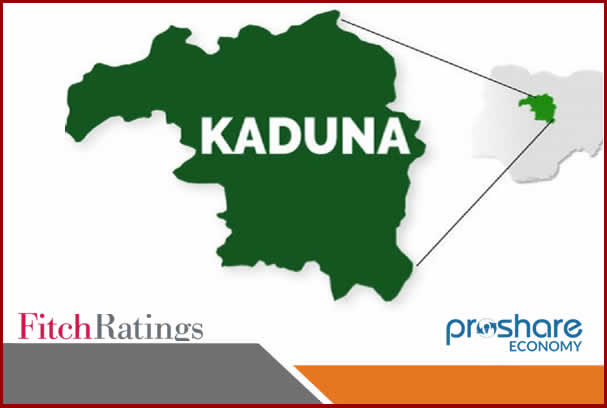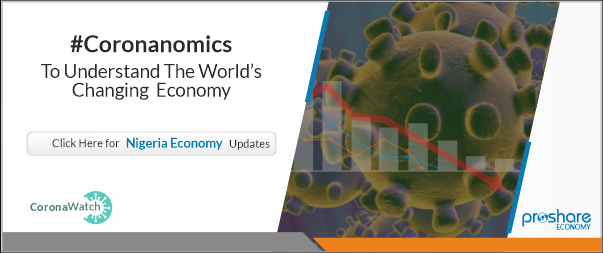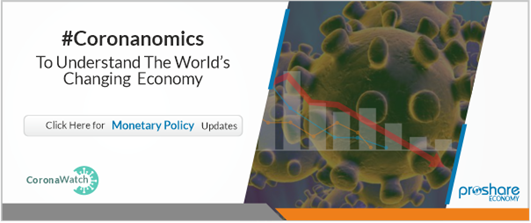Monday,April 13, 2020 / 10:16 AM / By Fitch Ratings / Header Image Credit: Daily Post Nigeria
FitchRatings has revised the Outlook on Kaduna State's Long-Term Foreign- andLocal-Currency Issuer Default Ratings (IDRs) to Negative from Stable andaffirmed the IDRs at 'B'.
Under EU credit ratingagency (CRA) regulation, the publication of International Public Financereviews is subject to restrictions and must take place according to a publishedschedule, except where it is necessary for CRAs to deviate from this in orderto comply with their legal obligations. Fitch interprets this provision as allowingus to publish a rating review in situations where there is a material change inthe creditworthiness of the issuer that we believe makes it inappropriate forus to wait until the next scheduled review date to update the rating orOutlook/Watch status. The next scheduled review date for Kaduna is 18 September2020.
Following the recentdowngrade of Nigeria's IDRs (see FitchDowngrades Nigeria to 'B'; Outlook Negative dated 6 April 2020) we haverevised Kaduna's Outlooks to Negative as its Outlooks move in tandem with thesovereign's.
RelatedLink: Fitch Downgrades Nigeria to 'B'; OutlookNegative
The ratings also reflectthe state's dependence on oil-related transfers from the Federal Government ofNigeria (FGN), which makes the state's revenue base quite sensitive to oilprices swings. The ratings further consider Kaduna's growing debt to fundnecessary capex for the development of basic infrastructures and socialservices.
While Nigerian local andregional governments' (LRG) most recently available issuer data may not haveindicated performance impairment, material changes in revenue and cost profilesare occurring across the sector and likely to worsen in the coming weeks andmonths as economic activity suffers and government restrictions are maintainedor broadened. Fitch's ratings are forward-looking in nature, and we willmonitor developments in the sector for their severity and duration, andincorporate revised base- and rating-case qualitative and quantitative inputsbased on performance expectations and assessment of key risks.
Key Rating Drivers
HIGH
Sovereign Cap
Kaduna's IDRs arecurrently aligned with the sovereign's and its Outlooks reflect those on thesovereign. A further downgrade of the sovereign's ratings will be mirrored onKaduna's ratings.
LOW
Risk Profile: 'Vulnerable'
Fitch has assessedKaduna's risk profile, or debt tolerance, at Vulnerable, which combines fivefactors at Weaker and one factor at Midrange (expenditure adjustability).
Revenue Robustness:'Weaker'
About 50% of Kaduna'sNGN100 billion operating revenue at end-2019 depends on allocations of oilrevenue transferred monthly from the Federal Accounts Allocation Committee(FAAC), which are expected to decline by more than 40% in 2020 following thesharp decrease in oil prices. The decline in transfers will not be offset withthe VAT expected increase to 7.5% from 5.0%, which could bring an additionalNGN6 billion additional revenue, by Fitch's estimates. Improvements ininternally generated revenue (IGR), which grew by over 50% according topreliminary 2019 financials versus 2018, could halt if Nigeria enters into anew recession and/or if lockdown measures are prolonged.
Revenue Adjustability:'Weaker'
Kaduna's revenue potentialdepends on the state's ability to expand its tax bases, both in terms ofbroadening the pool of taxpayers and enforcing tax compliance. The main fiscalrevenues are pay-as-you-earn taxes, on which Kaduna cannot set the tax rate,and land charges, for which Kaduna is implementing measures to expand the taxbase. The ability to enlarge the pay-as-you-earn tax base is limited by the lowlevel of income of the population, with over 50% living below the poverty line.
ExpenditureSustainability: 'Weaker'
Kaduna's varied set ofresponsibilities ranges from education (25%), healthcare (15%), economicdevelopment (over 15%), energy and environment (around 8%). Past expendituredynamics show a good track record of cost control, with operating revenue andexpenditure growing on average at the same pace in 2010-2018, around 7.5%-8.0%.
Under its revisedscenarios of a stressed economy, Fitch expects expenditure to grow aboverevenue in 2020 and then adjust in 2021-2024, as the state copes with theminimum wage increase for public employees amid declining revenue. Theoperating margin will remain in positive territory, but is expected to declinebelow 15% in case of prolonged lockdown measures calling for more support fromthe state for the economy and healthcare.
Expenditure Adjustability:'Midrange'
There are no mandatorybalanced budget rules defined by the central government for states, which arerequired to keep their deficits at 3% of national GDP. Kaduna's cost structureis moderately flexible, as an average 40% of expenditure is capex, which is largelyfinanced with the operating balance and can be delayed in case of need, asoccurred during the last recession in 2015-2016. In Fitch's view, expenditurereduction is moderately affordable given the high potential to increase theexisting level of healthcare and infrastructure services, while improvements inthe procurement process could improve expenditure allocation.
Liabilities and LiquidityRobustness: 'Weaker'
The national framework fordebt is evolving and thus borrowing limits are quite wide. There are norestrictions on debt maturities, interest rates or currency exposure. Over 90%of Kaduna's debt is served through deductions from the statutory allocation,including loans with local banks for salary bailouts, while the remaining partis made up of intergovernmental loans.
At end-2019, 70% ofKaduna's NGN241.2 billion adjusted debt, when included pension and contractorsarrears, was in foreign currency and the figure is expected to increase towards80% for a debt burden of over NGN350 billion by 2024, after the disbursementunder the USD350 million loan from the World Bank. The historical average costof debt is below 1% for multilateral foreign debt, while domestic debt carriesinterest rates around 10%. Kaduna's debt amortisation profile is smooth withlong maturities and sustainable debt service well below 1x the operatingbalance.
Liabilities and LiquidityFlexibility: 'Weaker'
Fitch deems Kaduna'sliquidity as weak as the state has no committed liquidity lines and domesticbanks rated in the 'B' category tend to extend credit lines either with shortmaturities or with FGN backup through direct deductions from FAAC for longermaturities. Fitch prudentially considers cash as restricted for payables.Emergency liquidity may also come directly from the federal government, as wasthe case in 2015-2016, with the Budget Support Facility helping states totackle pressures due to liquidity shortfalls, supporting payments of salariesand pensions.
Debt sustainability: 'bb'category
According to Fitch's ratingcase of a prolonged stressed economy, Kaduna's debt payback ratio (netdebt-to-operating balance) - the primary metric of debt sustainabilityassessment - could deteriorate to 23 years in the medium term, incorporatingthe effects of an economic downturn, corresponding to a 'bb' assessment.Secondary metrics - fiscal debt burden measured by net adjusteddebt-to-operating revenue - could move above 350% and is assessed at 'b', whileits actual debt-servicing coverage ratio above 1.5x is assessed at 'a'.
Kaduna is classified astype B LRG by Fitch, as it covers debt service with its operating balance.Kaduna's fast-growing 8.2 million young residents, growing unemployment rate ofaround 30%, and a traditionally strong primary sector contribute to weak socio-economicstandards. The public sector is a key employer in the state, directly andthrough its planned investment programmes. A large informal economy hindersprivate sector development, which ultimately affects the IGR tax base. Althoughdominant agricultural and service sectors drive the economy, Kaduna'sdevelopment plan is focused on the state's rich minerals resources byattracting foreign investors to key industrial projects.
Derivation Summary
Fitch assesses Kaduna'sStandalone Credit Profile (SCP) at 'b', reflecting a combination of avulnerable risk profile assessment and a 'bb' assessment of debtsustainability. The SCP also factors in Kaduna's high debt burden compared withinternational peers, in particular South-American states and provinces. Fitchdoes not apply any asymmetric risk or ad-hoc support from the centralgovernment and assesses intergovernmental financing as neutral to Kaduna'sratings. The 'B' IDR reflects Kaduna's own payment capacity, while debt-servicesupport from the central government through deductions from the statutoryallocation is factored into the debt framework.
Key Assumptions
Qualitative Assumptionsand assessments and their respective change since the last review 27 March 2020and weight in the rating decision:
Risk Profile: Vulnerable,unchanged with low weight
Revenue Robustness:Weaker, unchanged with low weight
Revenue Adjustability:Weaker, unchanged with low weight
ExpenditureSustainability: Weaker, unchanged with low weight
Expenditure Adjustability:Midrange, unchanged with low weight
Liabilities and LiquidityRobustness: Weaker, unchanged with low weight
Liabilities and LiquidityFlexibility: Weaker, unchanged with low weight
Debt sustainability: 'bb'category, unchanged with low weight
Support: n/a
Asymmetric Risk: n/a
Sovereign Cap: Yes,lowered with high weight
Quantitative assumptions -issuer specific
Fitch's rating casescenario is a "through-the-cycle" scenario, which incorporates acombination of revenue, cost and financial risk stresses. It is based on the2015-2018 figures, 2019 preliminary figures and 2020-2024 projected ratios. Thekey assumptions for the scenario include:
- 5% increase in operatingrevenue on average in 2020-2024 versus 8% in baseline scenario;
- 6% increase in operatingspending on average in 2020-2024 versus 8% in baseline scenario;
- 1.5% cost of debt in2020-2024.
Quantitative assumptions -sovereign related (note that no weights are included as none of theseassumptions was material to the rating action)
Quantitative assumptions -sovereign related
Figures as per Fitch'ssovereign actual for 2018 and forecast for 2020, respectively:
- GDP per capita (USdollar, market exchange rate): 1,820.7; 2,004
- Real GDP growth (%):1.9; -1.0
- Consumer prices (annualaverage % change): 12.1; 13.2
- General governmentbalance (% of GDP): -4.0; -5.8
- General government debt(% of GDP): 24.9; 31.5
- Current account balanceplus net FDI (% of GDP): 1.1; -4.7
- Net external debt (% ofGDP): -15.0; -0.2
- IMF DevelopmentClassification: EM
- CDS Market ImpliedRating: n/a
Rating Sensitivities
Factors that could,individually or collectively, lead to negative rating action/downgrade:
- A downgrade of thesovereign would lead to corresponding rating action on Kaduna's ratings.
- A weakening debtamortisation profile or financial debt growth leading to consistently higherdebt-to-current revenue ratios and an operating balance insufficient to cover debtservice with respect to Fitch's expectations could result in a downgrade.
Factors that could,individually or collectively, lead to positive rating action/upgrade:
- Fitch deems an upgradeof Kaduna's ratings as unlikely given the Nigerian sovereign rating(B/Negative). However, a higher overall assessment of its risk profile and apayback below five on a sustained basis years would be positive for Kaduna'sratings.
Committee Minute Summary
Committee date: 8 April2020
There was an appropriatequorum at the committee and the members confirmed that they were free fromrecusal. It was agreed that the data was sufficiently robust relative to itsmateriality. During the committee no material issues were raised that were not inthe original committee package. The main rating factors under the relevantcriteria were discussed by the committee members. The rating decision asdiscussed in this rating action commentary reflects the committee discussion.
Best/Worst Case Rating Scenario
Ratings of Public Financeissuers have a best-case rating upgrade scenario (defined as the 99thpercentile of rating transitions, measured in a positive direction) of threenotches over a three-year rating horizon; and a worst-case rating downgrade scenario(defined as the 99th percentile of rating transitions, measured in a negativedirection) of three notches over three years. The complete span of best- andworst-case scenario credit ratings for all rating categories ranges from 'AAA'to 'D'. Best- and worst-case scenario credit ratings are based on historicalperformance.
Summary Of Financial Adjustments
Contractors' and pensionarrears reported under Other Fitch Classified debt
Capex figures adjusted tomirror Fitch's estimated cash-like data
References For Substantially MaterialSource Cited As Key Driver Of Rating
The principal sources ofinformation used in the analysis are described in the Applicable Criteria.
ESG Considerations
Unless otherwise disclosedin this section, the highest level of ESG credit relevance is a score of 3 -ESG issues are credit neutral or have only a minimal credit impact on theentity, either due to their nature or the way in which they are being managedby the entity.
Kaduna has an ESGRelevance Score of 4 for Energy Management due to problems with electricity anddependency on oil-related transfers, which has a negative impact on the creditprofile, and is relevant to the ratings in conjunction with other factors.
Kaduna has an ESGRelevance Score of 4 for Human Rights and Political Freedoms due to thepresence of conflicts in the region, which has a negative impact on the creditprofile, and is relevant to the ratings in conjunction with other factors.
Kaduna has an ESGRelevance Score of 4 for Human Development, Health and Education as themajority of the population lives below the poverty line, which has a negativeimpact on the credit profile, and is relevant to the ratings in conjunctionwith other factors.
Kaduna has an ESGRelevance Score of 4 for Political Stability and Rights as political divisionsleading to unpredictable policy shifts with low budget predictability, whichhas a negative impact on the credit profile, and is relevant to the ratings inconjunction with other factors.
Related News - Rating Agencies on KadunaState
- Fitch Affirms Nigeria's Kaduna State at ''B''; Outlook Stable - Oct 11, 2019
- Fitch Affirms Nigeria's Kaduna State at 'B'; Outlook Stable - May 04, 2018
Related News - Rating Agencies on Lagos State
- Fitch Downgrades Lagos State to 'B' on Sovereign Rating Action; Outlook Negative
- Fitch Affirms Nigeria's Lagos State at 'B plus'; Outlook Stable
- Global Credit Rating (GCR) Downgrades Lagos State’s Environmental Municipality Note
- Fitch Affirms Lagos State at 'B' Plus; Outlook Stable
- Fitch Affirms Nigeria's Lagos State at ''B ''; Outlook Negative
Related News - Rating Agencies on Nigeria
- Fitch Downgrades Nigeria to 'B'; Outlook Negative
- Nigeria Long-Term Rating Lowered To ''B-'' On Weakening External Position
- Nigeria's Outlook Revised To Negative On Falling Foreign Exchange Reserves
- Moody's Announces Completion of a Periodic Review of Ratings of Nigeria
- Fitch Revises Outlook on Nigeria to Negative; Affirms at 'B plus'
- Moody's Changes Nigeria's Sovereign Ratings Outlook to Negative From Stable; Affirms The B2 Ratings
- Fitch Affirms Nigeria at 'B plus'; Outlook Stable
Related News - Rating Agencies on Banks
- Various Rating Actions On Nigerian Banks By S and P Following Sovereign Downgrade; Outlooks Stable
- Nigerian Banks at Severe Risk from Oil Price Slump, Coronavirus
- Fitch Downgrades 3 Nigerian Banks to 'B', Places All 10 Banks on Negative Watch
- Outlooks On Six Nigerian Banks Revised To Negative After Same Action On Sovereign
- Fitch Revises Outlook on UBA Subsidiaries to Negative on Parent Action
- Fitch Revises Outlook on 4 Nigerian Banks to Negative on Sovereign Action
- Moody's Affirms Bank of Industry Ratings, Changes Outlook to Negative from Stable
- Moody's Affirms Ratings of Nigerian Banks Following Action On The Nigerian Government
- Fitch Affirms Union Bank of Nigeria Plc at 'B-'; Outlook Stable
- Fitch Affirms Stanbic IBTC Bank at 'AAA(nga)'
- Fitch Affirms Zenith Bank Plc at 'B' plus; Outlook Stable
- Fitch Affirms Bank of Industry at 'B' plus; Outlook Stable
- Fitch Affirms United Bank for Africa PLC at 'B' plus; Outlook Stable
- Fitch Affirms Access Bank at 'B'; Stable Outlook
- Fitch Affirms Guaranty Trust Bank at 'B' plus; Stable Outlook
- Fitch Revises Outlook on FBNH to Stable; Affirms at 'B-'
- S and P Global Ratings Affirmed ETI And Ecobank Nigeria Ltd Ratings; Outlook Stable
- Fitch Rates Access Bank's Tier 2 Subordinated Debt Final 'A(nga)'
- Fitch Affirms Ecobank Transnational Inc at 'B'; Outlook Stable
- Access Bank 'B and B' Ratings Affirmed; Outlook Stable
Related News - Rating Agencies on SelectedCompanies and Notes
- Moody's Assigns Ratings to Dangote Cement Plc's DMTN Program and Proposed Series 1 Notes
- Rating Actions Taken On Several Corporate Issuers With Exposure To Nigeria
- Fitch Affirms Bharti Airtel at ''BBB-''; Off Watch Negative; Outlook Stable
- Fitch Revises IHS's Outlook to Negative; Affirms at 'B plus'
- Moody's Affirms Interswitch's Ratings; Outlook Remains Stable
- Moody Changes Ratings for IHS, Seplat and DANGCEM Following Negative Rating on Sovereign Outlook
- Moody's Assigns B2 Corporate Family Rating To Interswitch Limited; Outlook Stable
 Lagos, NG • GMT +1
Lagos, NG • GMT +1











 1843 views
1843 views













 Sponsored Ad
Sponsored Ad
 Advertise with Us
Advertise with Us







